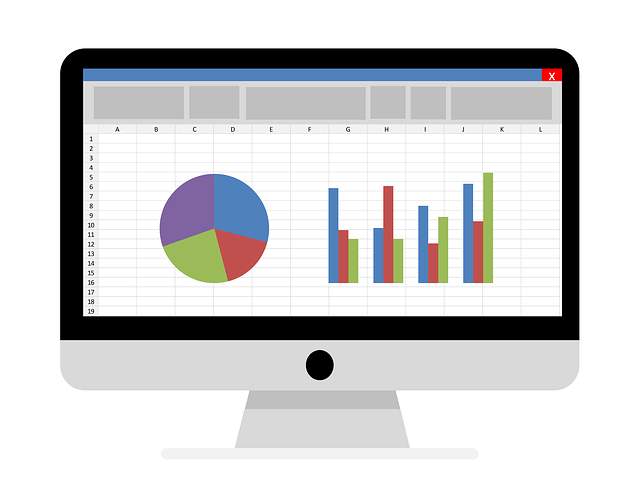Investments and Economic Growth
Only Russian
Библиографический список:
- Decree of the Government of the Russian Federation of April 15, 2014 N 328 (as amended on December 14, 2018) “On the approval of the state program of the Russian Federation” Development of industry and increasing its competitiveness ” [Ob utverzhdenii gosudarstvennoy programmy Rossiyskoy Federatsii “Razvitiye promyshlennosti i povysheniye yeye konkurentosposobnosti”]) http://www.static.government.ru/media/files /1gqVAlrW8Nw.pdf (accessed date: 02/10/2019)
- The Ministry of Economic Development of Russia. Monitoring On the results of the socio-economic development of the Russian Federation in 2016 [Monitoring Ob itogakh sotsial’no-ekonomicheskogo razvitiya RF v 2016 g.] // http://www.economy.gov.ru/minec/activity/sections/macro/2017070204 (accessed: 02/10/2019)
- Monitoring the economic situation in Russia Trends and challenges of socio-economic development [Monitoring ekonomicheskoy situatsii v Rossii. Tendentsii i vyzovy sotsial’no-ekonomicheskogo razvitiya] // Institute of Economic Policy named after E.T. Gaidar – 2019. -№1 (84) https://www.iep.ru/files/RePEc/gai /monreo/monreo-2019-1-928.pdf (accessed: 02/11/2019)
- Aganbegyan A.G. The main reason for the stagnation of Russia [Aganbegyan A.G. Glavnaya prichina stagnatsii Rossii] // Free economy. – 2017.-№01 January-March.-S.19
- Aghion P. A model of growing through creative destruction / P. Aghion, P. Howitt // Econometrica.-1992.№ 2.-Vol.60.-pp.323-351
- Bahmani-Oskooee M. On the relation between currency depreciation and domestic investment / M. Bahmani-Oskooee, M. Hajilee // Journal of Post Keynesian Economics.- 2010.№4.-Vol.32.-p.645
- Federal Law of November 29, 2018 No. 459-ФЗ “On the Federal Budget for 2019 and for the Planning Period 2020 and 2021” [O federal’nom byudzhete na 2019 god i na planovyy period 2020 i 2021 godov] //https://www.minfin.ru/en/document/?id_4=126363 (appeal date: 02/15/2019)
- Discussion of the Higher School of Economics “The role of human capital in development” [Diskussiya Vysshey shkoly ekonomiki «Rol’ chelovecheskogo kapitala v razvitii»] //Krasnoyarsk Economic Forum, Krasnoyarsk 2019
- Gimpel’son V.Ye. Does the Russian economy need human capital? Ten doubts [Nuzhen li rossiyskoy ekonomike chelovecheskiy kapital? Desyat’ somneniy] // Issues of Economics.-2016.-№10.-S.129-143
- Lyubimov I. From human capital to economic growth: a straight road or a long walk through the maze? [Ot chelovecheskogo kapitala k ekonomicheskomu rostu: pryamaya doroga ili dolgoye bluzhdaniye po labirintu?] // Economic issues. 2017. No. 8. P. 5-23
- Suleymanova D.A., Rabadanova S.R. Methodological approaches to the assessment of investment activity and investment attractiveness of an enterprise [Metodologicheskiye podkhody k otsenke investitsionnoy aktivnosti i investitsionnoy privlekatel’nosti predpriyatiya] // Economics and Entrepreneurship. – 2014. – No. 11–3 (52–3). – S. 538–541
- Supyan V.B. Globalization of the US economy: scope, achievements and problems [Globalizatsiya ekonomiki SSHA: masshtaby, dostizheniya i problemy]// Russian Foreign Economic Bulletin, 2015, No. 9, P. 8-27
- Supyan V.B. Scientific and technical potential is a key factor in the development of the US economy in the XXI century [Nauchno-tekhnicheskiy potentsial – klyuchevoy faktor razvitiya ekonomiki SSHA v XXI veke]// Russia and America in the XXI century, 2016, No. 2, P. 9
- Markusen J. Foreign direct investment as a catalyst for industrial development / Markusen J., A. Venables // European Economic Review- 1999.- Vol. 43, No. 2, pp. 335—356
- Deyneka L.N., Tolstobokov V.V.Foreign investment in the Russian economy: problems of dynamics, structure, and influence on the national economy [Inostrannyye investitsii rossiyskoy ekonomike: problemy dinamiki, struktury, i vliyaniya na natsional’nuyu ekonomiku] // Problems of education, economy, personality formation: Mater. conf. – Rostov-on-Don, 2014.- P.277-284.)
- Amosov V. Are foreign investments productive? [Rezul’tativny li inostrannyye investitsii?] // Economist. – 2007.- No. 1- P.29-36
Investments and Economic Growth Read More »
































